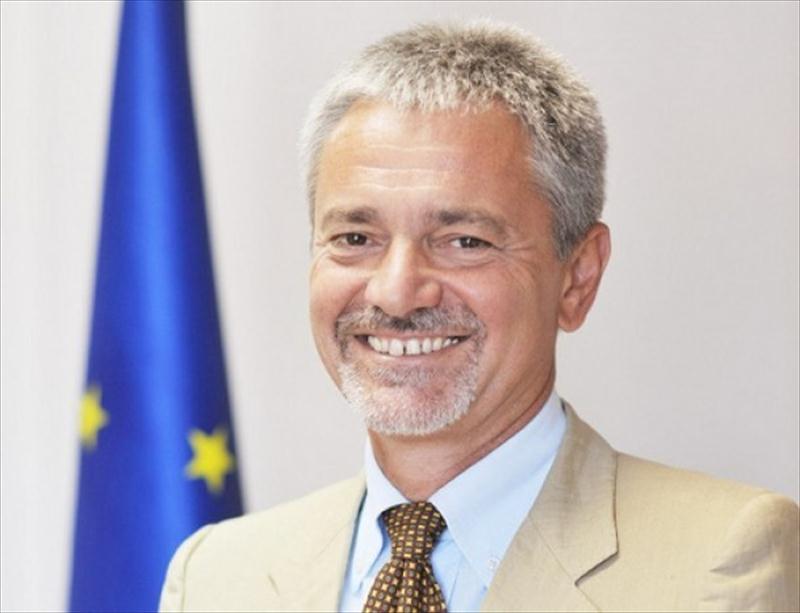Political developments in the country, European Integration, the engagement and support of the European Union to Bosnia and Herzegovina, the “Sejdic- Finci” issue – all were covered in an interview for the Glas Srpske newspaper by the Deputy Head of the EU Delegation to BiH, Dr. Renzo Daviddi.
How do you assess the current political situation in BiH in the context of the preparations for the meeting in Brussels, which is scheduled for October?
Indeed, Commissioner Füle has signed letters to invite participants of Bosnia and Herzegovina to the Third Meeting of the High Level Dialogue on the Accession Process, planned to be held in Brussels on 1st October. The main topics to be discussed should be the implementation of the Sejdić-Finci judgment, the establishment of an efficient and effective coordination mechanism, the problems surrounding the adaptation of the SAA following the accession of Croatia to the European Union and the future support to the country under the Instrument of Pre-accession. There have been delays on EU path due to domestic politics. Many in the European Union have been disappointed by the lack of leadership amongst the most prominent politicians to make progress on the EU path while the rest of the region was moving ahead. However, I hope that politicians will be able to break through the political and administrative impasse that has blocked progress for so long. What the leaders of Bosnia and Herzegovina need to do now is fulfil their commitments to both: their citizens and the EU.
We are still waiting for the leaders of the most powerful political parties to agree to implement the “Sejdic-Finci” judgement, which is, together with the EU coordination mechanism, the main condition for progress in the European integration process. Where is the problem, in your opinion?
The problem is in the lack of political will and the inability of the political leaders to turn declared commitment into concrete action. I can only repeat to you that the issue of implementing “Sejdic-Finci” judgement will not go away – it will get bigger and it will become more urgent. And only progress on its implementation will allow the European Union to put into place the Stabilisation and Association Agreement for Bosnia and Herzegovina and to enable this country to submit a credible membership application.
It is known that attempts to agree on “Sejdic-Finci” until now failed because the parties in the Federation, which are unable to agree on the method of implementation, while the parties in the RS have had consolidated their stance about it. Do you think that in the next period, this practice will be continued or you see the possibility that some of the parties in the FBiH will give in?
That is the question to be answered by the BiH political leaders. The EUD/EUSR remains available to the institutional and political leaders of BiH, to facilitate progress on the implementation of the judgement of the ECHR. The ball is in the court of the leaders regarding the necessary political agreement.
How does BiH stand with the fulfilment of other conditions on the road to the EU? Is there any chance to catch up with the countries of the region?
If Bosnia and Herzegovina meets the required conditions, yes! We could not have been more explicit about the things that need to be done to move this country’s EU integration forward. We want Bosnia and Herzegovina to join the EU. But clearly it is up to BiH to decide when it will submit an EU membership application. When it does, it should be credible and that means undertaking the reforms to ensure a functional state working in full respect of EU values.
You have said that the efforts of the EU in BiH to move forward in the field of European integration did not give the expected results. Why?
There is a lot of talk these days but little action. The action is what is needed and it is clear who needs to act, the EU can only help. In the meantime, the priorities for Bosnia and Herzegovina to make progress on the EU path are well known to the country’s leaders and institutions.
FBiH does not work for some time now, Government is working with difficulties and the Parliament appears almost not to adopt Laws at all. How much citizens of BiH suffer because of this situation?
A lot. We do not want to see BiH legging behind, but the choice is yours. The speed of Bosnia and Herzegovina’s EU integration depends ultimately on the country’s progress in EU related reforms, thus on the country’s leaders and on the citizens who vote for them.
The EU recently suspended 4.5 million set aside for projects to help tourism and the introduction of quality management systems in small and medium enterprises in BiH. Is there a possibility for a new suspension of money from the EU funds?
In June, we already were forced to suspend five million Euros committed for projects in agriculture and rural development. Only a month later, we have to suspend additional millions of Euros in two equally important sectors – SMEs and tourism. Clear political agreement on the scope of activities, including the approval of relevant project reports, and an agreed way forward in project implementation are needed for further support to these sectors. The lack of agreement does not only mean the potential loss of 4.5 million EUR of EU funds. It may also have implications on the allocation of millions of Euros of EU funds for economic development under IPA 2, the main EU programme of financial assistance to BiH for 2014-2020. Bosnia and Herzegovina still has a window of opportunity to make an agreement and avoid termination. The EU-BiH IPA Monitoring Committee will meet on 10 September 2013 to consider whether the projects should be terminated or, if relevant preconditions are put in place, can go forward.




